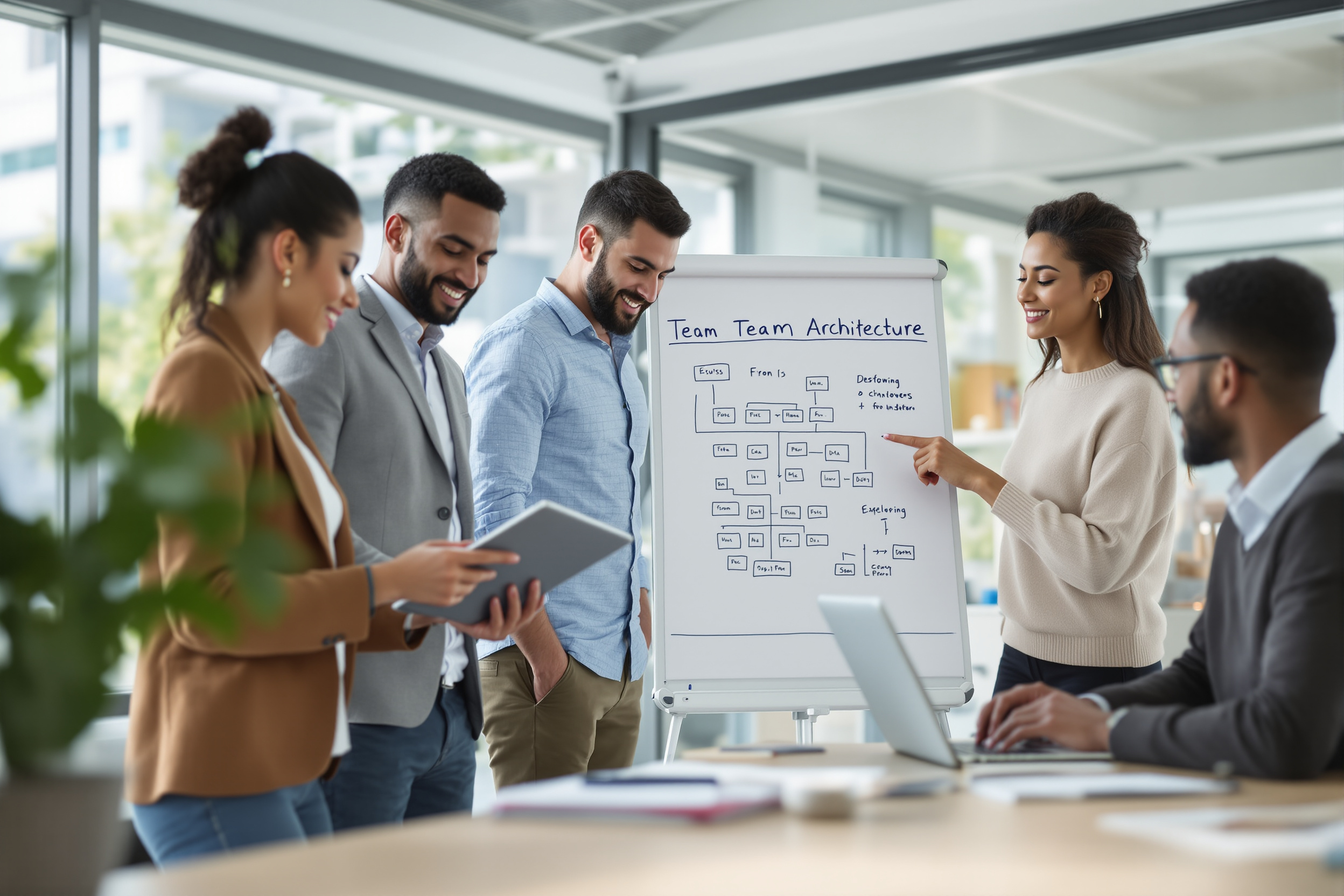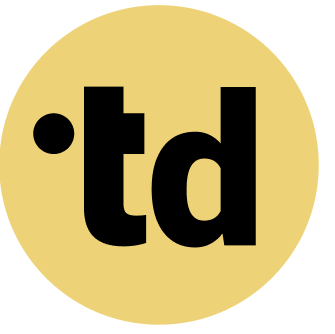Key Takeaways
A massive 91% of German companies view generative AI as critical for their business, signaling a major shift in organizational strategy.
Within the next year, nearly 60% of organizations expect AI to function as an active team member or even a supervisor to other AIs.
Trust in fully autonomous AI has declined from 43% to 27% in one year, emphasizing the critical need for human-in-the-loop hybrid team (humans and AI agents) structures.
Teams are the heroes of Many organizations, but they face unprecedented levels of chaos. A stunning 91 percent of German companies now see generative AI as critical to their future success. This isn't just about new tools; it's about a fundamental shift in organizational development. The journey from overload to clarity requires a new map. Case studies of AI-driven team architecture provide that map, showing how hybrid human-AI models deliver powerful results. This is how modern leaders are operationalizing strategy and building resilient, future-ready teams.
Practical Framework for Team Architects
As a Team Architect, you can apply these principles to your organization:
- Map Current State: Document existing roles and responsibilities using a tool like teamdecoder.
- Identify Gaps: Where are roles unclear? Where do humans and AI agents overlap?
- Define Clear Boundaries: Specify which tasks are handled by humans vs. AI agents.
- Create Accountability: Assign clear decision rights for each role.
- Iterate and Improve: Continuously refine based on team feedback.
Teams Just Wanna Have Fun (But Are Drowning in Chaos)
Today's teams face constant change fatigue and role ambiguity. This operational friction isn't trivial; it slows projects and burns out top talent. A recent study highlighted that organizations must reconfigure roles and duties to adapt. The old way of structuring work, with static charts, simply cannot keep up with today's dynamic demands. This lack of clarity is a primary barrier to scaling effectively. This environment creates a pressing need for better organizational development tools and strategies. Without a clear framework, even small tasks become complex coordination challenges, impacting performance by over 15 percent. This foundational problem sets the stage for a necessary transformation.
Embracing the AI Co-Pilot for Organizational Clarity
AI is emerging as the key to navigating this complexity. Already, 69 percent of German companies have a formal strategy for generative AI. They are moving beyond theory to practical application in their team structures. Nearly six in ten organizations expect AI to be an active team member within the next twelve months. This represents a fivefold increase in scaled AI adoption in just two years. This rapid shift signals a new era of hybrid team (humans and AI agents) design. You can learn more about building a hybrid human-AI team. This strategic pivot is not just a trend; it's a competitive necessity for modern leaders.
Architect Insight: Designing Your Human-AI Team
For Team Architects, the focus is on creating seamless hybrid team governance. The goal is to integrate AI in a way that augments human capabilities, not just automate tasks. A recent Capgemini report outlines a clear roadmap for this transformation. Our Playful Tip: Start by defining which decisions are human-led, AI-led, or hybrid. This simple step clarifies roles and responsibilities from day one. Here are key actions for Team Architects:
- Redesign core processes and workflows to include AI agents.
- Transform workforce structures to support human-agent collaboration.
- Balance AI autonomy with human oversight to build sustainable trust.
- Strengthen data and technology foundations to ensure scalability.
- Develop ethical AI guidelines to mitigate risks and build confidence.
Deep Dive: Successful hybrid team structures require a new operating model. Two-thirds of enterprises agree they will need to restructure their teams to enhance this collaboration. Download the "Dream Team Builder" guide to get started. This proactive approach to change management ensures the technology serves the team's ultimate goals.
Real-World Results: The Measured Impact of AI Integration
The shift to AI-driven teams delivers quantifiable benefits. Organizations engaged in data collaboration see productivity improve by an average of 14 percent. They also achieve cost reductions of around eleven percent. By 2028, AI agents are projected to generate up to $ in economic value through revenue growth and cost savings. These metrics demonstrate a clear return on investment for strategic AI adoption. This is not just about efficiency; it is about creating new value. For more on this, see our guide to augmenting human team capabilities. The data shows that well-designed hybrid teams outperform their traditional counterparts significantly.
Make Bots and Humans Click Through Trust and Training
Successful AI integration hinges on the human element. Acknowledging employee concerns is the first step in effective change management. Interestingly, trust in fully autonomous AI agents has dropped from to a significant portion in one year. This highlights a clear preference for human-in-the-loop systems. Germany's Fraunhofer Institute addresses this by taking its KI-Studios project directly to employees and works councils. Their hands-on workshops allay fears and build a concrete understanding of AI's benefits. This approach empowers people to become active participants in the transformation. You can try teamdecoder for free to see how clear roles make change feel like play. This focus on people is crucial for seamless human-AI teamwork.
Scaling Success: From Pilot to a New Operating Model
Moving from a successful pilot to a company-wide AI-driven architecture requires a plan. Investment is clearly on the rise, with most German firms planning to increase th More than half of those are planning increases of at least a significant portion.ast . Yet, only enterprises have established AI governance policies. Our Playful Tip: Create a center of excellence to guide the scaling process and ensure consistent application of effective methods. This provides a repeatable toolkit for internal enablers and modern leaders alike. This structured approach is key to optimizing task allocation and achieving long-term success.
The Future is Hybrid: Your Next Move as a Team Architect
The future of work is a collaborative dance between human talent and AI efficiency. By 2028, some organizations will have AI agents as formal members of human teams. As a Team Architect, your role is to design the choreography for this new world of work. The case studies show that clarity, trust, and a human-centered approach are the keys to success. Start by mapping one team's roles and responsibilities to see the immediate benefit. This first step builds the momentum needed for wider organizational development. The journey to a fully optimized hybrid team starts with a single, well-defined step. Try teamdecoder for free - shape your team and make change feel like play! See our pricing. For more on getting started, start our free course on workforce transformation.
More Links
German Federal Ministry of Labour and Social Affairs offers a brochure on working with artificial intelligence.
Federal Statistical Office (Destatis) provides a press release related to artificial intelligence.
acatech (German National Academy of Science and Engineering) publishes on using AI for greater inclusion in the working world.
Fraunhofer IAO shares information on AI ultra-transformation processes for its implementation in companies.
BCG (Boston Consulting Group) presents a press release about a study indicating that two-thirds of Germans utilize AI in the workplace.
DGFP (German Society for Personnel Management) features an article discussing artificial intelligence in HR.
IW Cologne offers a report examining AI and the labor market.
Bertelsmann Foundation provides an article on the stagnation of AI jobs in the German labor market.
German Federal Ministry of Labour and Social Affairs offers information on digitization and AI in the context of securing skilled workers.
FAQ
What is AI-driven team architecture?
AI-driven team architecture is the practice of designing and managing organizational structures, roles, and workflows with the support of artificial intelligence. It uses AI to analyze tasks, recommend optimal team compositions, and create hybrid systems where humans and AI agents collaborate effectively to improve clarity and performance.
Why is human oversight important in AI-powered teams?
Human oversight is critical because trust in fully autonomous AI is declining. It ensures that AI-driven decisions align with ethical standards, business goals, and common sense. This human-in-the-loop approach builds trust among employees and stakeholders, mitigates risks, and combines AI's analytical power with human intuition and strategic thinking.
How can I prepare my team for AI integration?
Prepare your team by focusing on communication and training. Use hands-on workshops, like those offered by the Fraunhofer Institute, to demystify AI and allay fears. Involve employees and their representatives in the process of redesigning roles. Focus on upskilling them for new responsibilities in a hybrid team (humans and AI agents) environment.
What is the first step to creating a hybrid team?
The first step is to clearly define roles and responsibilities. Use a tool like teamdecoder to map out your current team structure and identify which tasks are best suited for humans, which can be augmented by AI, and which can be fully automated. This creates a clear foundation for building an effective hybrid model.





